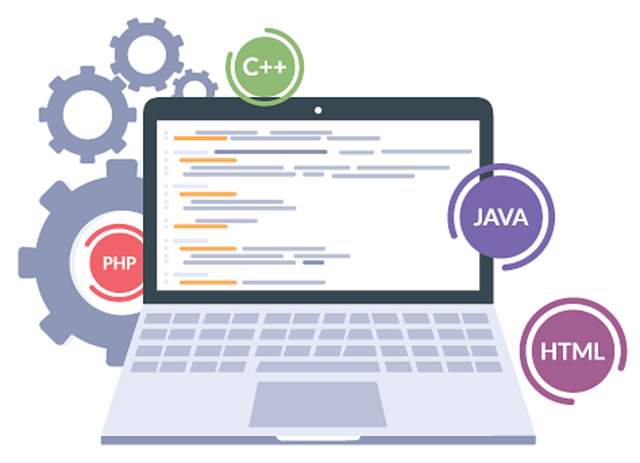In today's digital world, a website is a crucial asset for businesses, but it requires ongoing maintenance to remain effective and competitive. Website maintenance services address key aspects like regular updates, security, content management, performance optimization, and backups. By keeping websites up-to-date, secure, and fast, these services enhance user experience, improve search engine rankings, and build customer trust. Selecting a competent partner is essential for efficient online presence management, ensuring your website stays reliable, relevant, and competitive in the dynamic digital landscape.
Website maintenance services are vital for online businesses aiming to thrive in today’s digital landscape. With millions of websites facing constant security threats, performance issues, and content obsolescence, proactive maintenance is essential. This article explores the critical aspects of website maintenance, from addressing common challenges like malware and slow loading times to optimizing performance and implementing robust backup strategies. We’ll also guide you through choosing a reliable partner for your website’s health and longevity.
Understanding Website Maintenance: Why It's Essential for Online Businesses

In today’s digital era, a website is not just an online presence but a crucial tool for any business to thrive. Website maintenance, often overlooked, is the process of keeping your site in top shape and ensures it serves its intended purpose effectively. It involves regular updates, security measures, performance optimization, and content freshness—all vital aspects that directly impact user experience and search engine rankings.
Neglecting website maintenance can lead to a variety of issues. Outdated content may deter visitors, while broken links and slow loading times can drive them away. Security vulnerabilities can expose your business to online threats, and poor performance can negatively affect your brand’s reputation. Thus, investing in comprehensive website maintenance services is essential for online businesses to stay competitive, maintain customer trust, and achieve long-term success.
Common Challenges Faced by Websites and How Maintenance Addresses Them

Websites, much like any complex system, face a multitude of challenges that can hinder their performance and accessibility. Common issues include slow loading times due to outdated code or excessive media, security vulnerabilities from lack of regular updates, and broken links or functionality resulting from sporadic content management. These problems not only negatively impact user experience but also affect search engine rankings and overall website health.
Website maintenance services address these challenges head-on. Regular updates and optimizations ensure faster loading speeds and enhanced security through patch application and malware scanning. Systematic content auditing and link checks keep the site functional and relevant, while performance monitoring tools identify and resolve issues before they disrupt visitors. By implementing structured maintenance routines, websites can stay robust, secure, and engaging, ultimately fostering better user interactions and search engine friendliness.
Key Components of Effective Website Maintenance Services

Effective website maintenance services are built on several key components that ensure a site remains functional, secure, and up-to-date. Regular updates are paramount; this includes applying patches to fix vulnerabilities and installing the latest software versions to maintain compatibility with evolving technologies. Content management is another critical aspect, involving the creation, editing, and publishing of fresh, engaging content that keeps visitors coming back.
Moreover, performance optimization techniques such as load time reduction, mobile responsiveness, and search engine optimization (SEO) practices are essential. These strategies not only enhance user experience but also boost a site’s online visibility and drive organic traffic. Additionally, regular backups safeguard against data loss, while security measures like firewalls and malware scanning protect the website from cyber threats.
The Role of Regular Updates in Ensuring Website Security

Regular updates play a pivotal role in safeguarding websites from potential security threats and vulnerabilities. As the digital landscape evolves, new security loopholes emerge, and it’s crucial for website owners to stay ahead of these developments. By implementing timely updates, web administrators can patch up these gaps, fortifying their sites against malicious attacks. This proactive approach is essential in the realm of website maintenance, ensuring that data remains secure and user privacy is protected.
Website maintenance services often include routine security updates as a core component. These updates not only fix known security issues but also improve overall system stability. By keeping software, plugins, and themes up to date, website owners can mitigate risks associated with outdated components, which are often targeted by hackers. Regular maintenance ensures that the website remains a robust and secure online presence, fostering user trust and confidence.
Optimizing Website Performance: A Major Focus Area for Maintenance Teams

Website maintenance teams prioritize optimizing performance as a key aspect of their services. This involves a range of strategies to ensure your site loads swiftly, functions smoothly, and provides an exceptional user experience. By implementing efficient coding practices, utilizing content delivery networks (CDNs), and regularly monitoring server health, maintenance professionals enhance website speed and responsiveness, which are critical factors for retaining visitors and improving search engine rankings.
Moreover, performance optimization includes regular security checks, patch management, and staying up-to-date with web standards. These measures safeguard your site from potential vulnerabilities, ensuring data integrity and user privacy. In today’s digital landscape, where users expect instant access to information, a well-maintained website delivers both speed and security, fostering visitor satisfaction and driving better online engagement.
Backup Strategies: Protecting Your Website's Data and Content

Website maintenance services include crucial backup strategies that protect your site’s data and content from potential loss or damage. Regular backups are essential to ensuring that your website can be restored to its previous state in case of a security breach, human error, or technical failure. These strategies involve creating multiple copies of your site’s files and database, which can be stored locally or on secure cloud servers.
By implementing robust backup procedures, website owners can safeguard their digital assets, maintain continuity, and minimize downtime. This is particularly important for businesses that rely heavily on online operations, as data loss could lead to significant financial implications and a negative impact on customer trust. Effective backup strategies are, therefore, an integral part of any comprehensive website maintenance plan.
Choosing the Right Website Maintenance Partner: Tips and Considerations

Choosing the right website maintenance partner is a crucial step in ensuring your online presence stays fresh, secure, and effective. When evaluating potential partners, start by understanding their expertise and experience. Look for companies that specialize in ongoing website support, offering services like content updates, security patches, and performance optimizations. Experience matters; a partner with a proven track record of successfully maintaining diverse websites signals reliability and a deep understanding of the latest digital landscape.
Next, assess their communication and customer service. Effective collaboration hinges on clear lines of communication. Opt for partners who are responsive, transparent, and willing to take the time to understand your unique business needs. Regular updates and detailed reports about maintenance activities demonstrate accountability and help you stay informed about your website’s health and performance.
